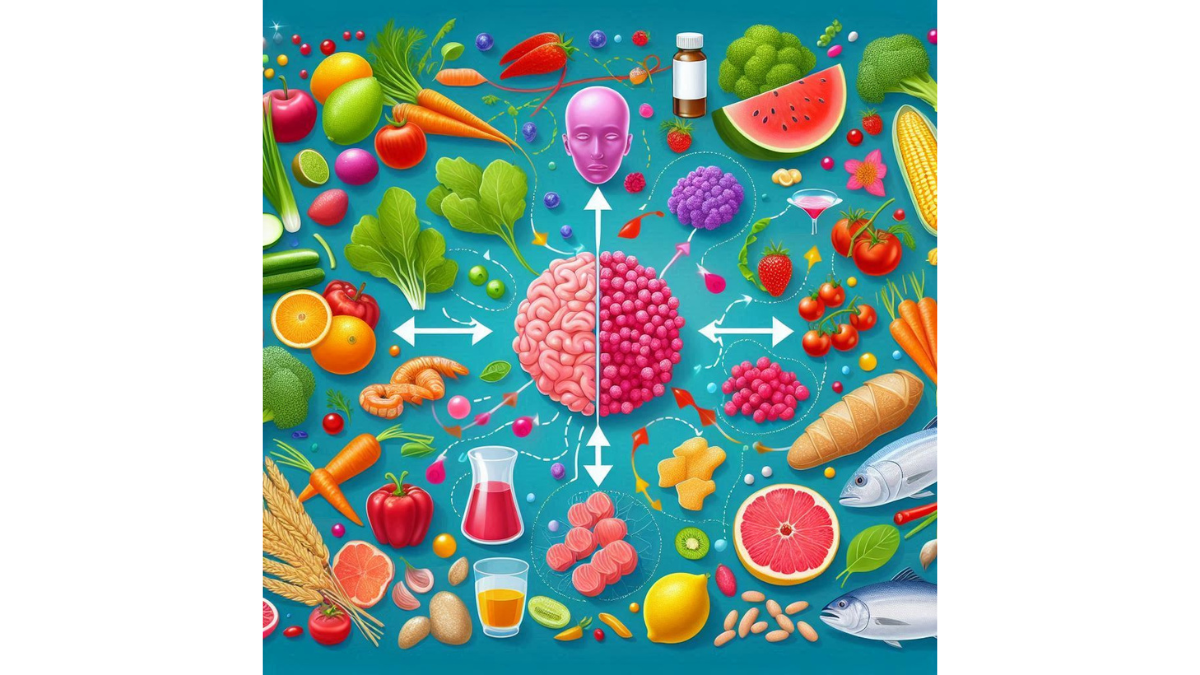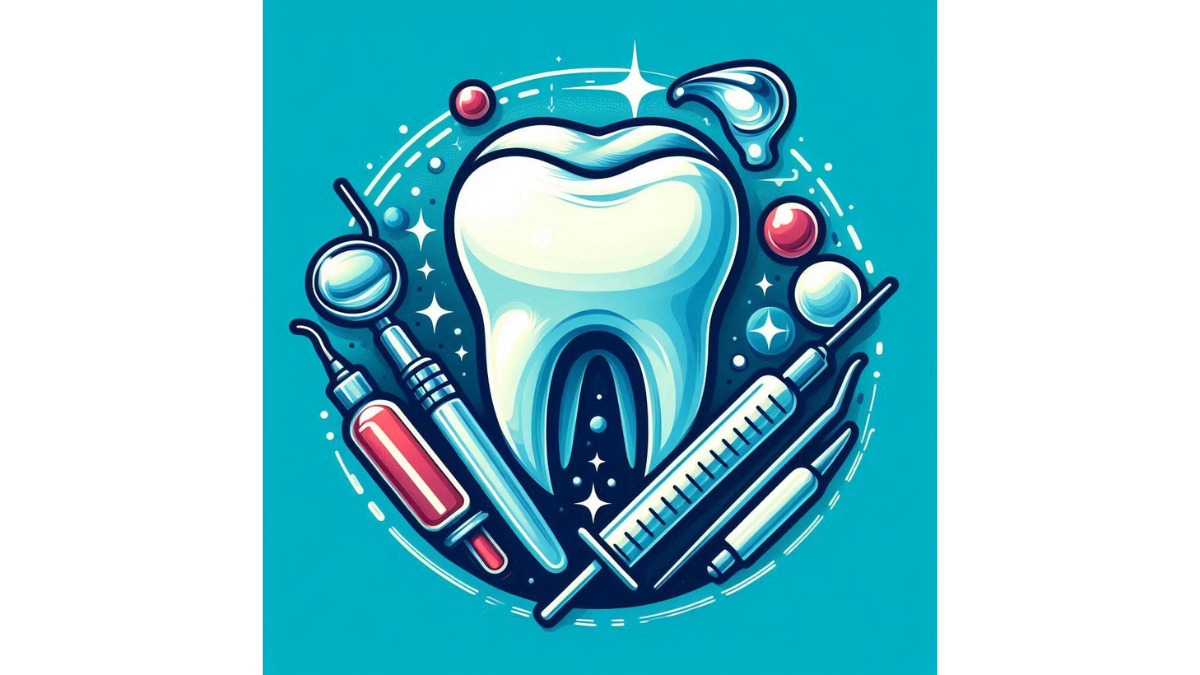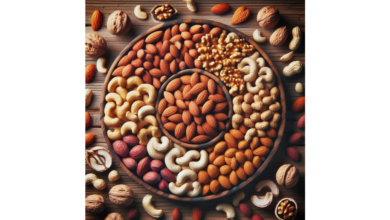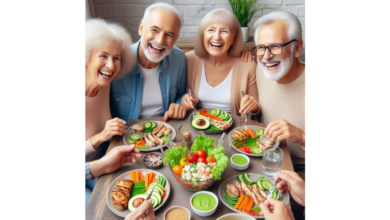cancer and nutrition

cancer and nutrition – Cancer is a profound topic that affects millions of lives globally, both directly and indirectly. As someone who has witnessed the struggle of a close friend battling cancer, I understand the emotional and physical toll it can take. It’s not just a diagnosis; it shapes lives, redefines priorities, and forces individuals to confront some of their deepest fears. Equipping oneself with knowledge about cancer and nutrition can be a powerful tool in this battle. Together, we can explore how diet and lifestyle factors influence cancer risk, treatment, and recovery.
The Importance of Nutrition in Cancer Care
Nutrition plays a critical role not only in cancer prevention but also in the management of symptoms and side effects for those undergoing treatment. A well-rounded diet can bolster the immune system, sustain energy levels, and improve overall well-being. Here are a few key points to consider:
- Nutrition’s Role: It supports healing and recovery by providing essential nutrients.
- Flexibility in Choices: It allows patients to adapt their eating habits based on their unique needs during treatment.
- Consistency Matters: Maintaining a balanced diet can help minimize drastic fluctuations in weight or energy.
With a focus on practical advice and strategies, we will delve deeper into how nutrition can be an ally in the fight against cancer, offering hope and empowerment along the way.
Understanding Cancer
To truly empower yourself, it’s important to grasp the complexity of cancer—what it is, the different types, and the risk factors that may influence its development. Understanding these aspects can help inform your decisions, including nutritional choices that may impact your health.
Types of Cancer
Cancer is not a singular disease but rather a collection of over 100 different types. Each type is categorized based on the organ or tissue where it starts. Here are some of the most common types:
- Breast Cancer: Often detected through self-exams, mammograms are crucial for early detection.
- Lung Cancer: Primarily associated with smoking, but non-smokers can also be affected.
- Colorectal Cancer: Develops in the colon or rectum and can be influenced by diet choices.
- Prostate Cancer: Predominantly affects men and can be slow-growing.
Seeking knowledge about the various forms of cancer can demystify fears and prepare you for conversations with healthcare providers.
Causes and Risk Factors
Understanding the causes and risk factors of cancer can also be pivotal in prevention strategies. While genetics play a role, lifestyle factors are often significant. Consider the following:
- Tobacco Use: Smoking and smokeless tobacco are leading causes of various cancers.
- Diet: Poor dietary habits, high in processed foods, can increase risk.
- Obesity: Excess weight is linked to several types of cancer.
- Environmental Exposures: Pesticides and pollutants may contribute to risk.
By becoming aware of these factors, you empower yourself to make informed choices, paving the way for better health outcomes. Remember, your choices matter, and they can help you mitigate risks associated with cancer.
The Impact of Nutrition on Cancer
Building on our understanding of cancer types and risk factors, it becomes increasingly clear that nutrition plays a significant role in both prevention and management. Your diet isn’t just about maintaining weight; it’s a proactive step towards better health—especially when facing cancer. Let’s dive into how specific dietary patterns and nutrients can influence this journey.
Dietary Patterns
Certain dietary patterns have been linked to lower cancer risk and can even aid those undergoing treatment. For example, the Mediterranean diet—which is rich in fruits, vegetables, whole grains, healthy fats, and lean proteins—has been associated with reduced cancer incidence. Here’s what to focus on:
- Fruits and Vegetables: Aim for a colorful variety to maximize nutrient intake.
- Whole Grains: They provide fiber, crucial for digestive health.
- Healthy Fats: Olive oil, nuts, and fish contribute to anti-inflammatory benefits.
As a personal example, my friend found that integrating more leafy greens and antioxidants helped improve her energy levels during treatment, making mealtime something to look forward to.
Nutrients and Antioxidants
Nutrients and antioxidants have the power to protect your body from cellular damage. Including them in your diet may enhance your well-being. Key players include:
- Vitamin C: Found in oranges and bell peppers, it supports the immune system.
- Vitamin E: Present in nuts and seeds, it acts as a powerful antioxidant.
- Selenium: This mineral is found in Brazil nuts and may play a role in reducing cancer risk.
Focusing on these nutrients not only supports overall health but also cultivates a resilience that can be crucial in your cancer journey. Remember, nourishing your body is an investment in hope and healing.
The Role of Weight Management
Having explored how nutrition can impact your health, let’s now consider the crucial link between weight management and cancer. It’s vital to understand how obesity not only affects your overall health but also plays a role in increasing cancer risk.
Obesity and Cancer
Research consistently shows that obesity is a significant risk factor for several types of cancer, including breast, colorectal, and endometrial cancers. Excess body fat can alter hormone levels in the body, leading to increased inflammation and insulin resistance, both of which can contribute to tumor development. Here are a few key points regarding this connection:
- Hormonal Changes: Obesity can lead to higher estrogen levels, which have been linked to breast and uterine cancers.
- Chronic Inflammation: Fat tissue produces inflammatory substances, which can influence cancer growth and spread.
- Metabolic Factors: Insulin and insulin-like growth factors may promote the development of certain tumors.
Reflecting on my personal experience, I’ve seen how weight changes can impact a loved one’s outlook on their treatment, motivating them to embrace healthier choices to combat their illness.
Weight Loss Strategies
Achieving and maintaining a healthy weight is essential, especially for cancer patients or those at risk. Here are some strategies that can be helpful:
- Balanced Diet: Focus on whole foods, including fruits, vegetables, lean proteins, and whole grains.
- Regular Physical Activity: Aim for at least 30 minutes of moderate exercise most days of the week; consider walking, swimming, or yoga.
- Mindful Eating: Pay attention to hunger cues and avoid emotional eating by practicing mindfulness techniques.
Setting realistic goals and seeking support from professionals, like nutritionists and personal trainers, can make a significant difference. Remember, small changes can lead to substantial improvements in both weight management and overall health. Your journey towards a healthier weight is a vital investment in your fight against cancer.
Popular Diets for Cancer Prevention and Treatment
As we look more closely at how nutrition can be a powerful ally in the fight against cancer, it’s essential to explore popular dietary patterns that are linked to cancer prevention and treatment. Two of the most widely recognized and recommended diets are the Mediterranean diet and the plant-based diet. Each offers unique benefits that can support your health during a challenging time.
Mediterranean Diet
The Mediterranean diet is celebrated not just for its taste but also for its health benefits. This dietary approach emphasizes fresh, natural foods and healthy fats, creating a delicious and nutritious way of eating. Here’s what makes it stand out:
- Rich in Fruits and Vegetables: It encourages a colorful variety that guarantees a wide range of nutrients.
- Healthy Fats: Olive oil, nuts, and fish help reduce inflammation and provide essential fatty acids.
- Whole Grains and Legumes: These offer fiber, which is beneficial for digestive health and weight management.
From my personal experience, adopting the Mediterranean diet allowed me to enjoy meals with family that also supported my health goals. Cooking with fresh ingredients brought joy back to the table.
Plant-Based Diet
The plant-based diet focuses primarily on whole, plant foods, such as fruits, vegetables, whole grains, nuts, and seeds. This diet not only allows for nutrient-dense meals but has been researched extensively for its cancer-fighting properties. Here are key components:
- High in Fiber: Plant-based foods are typically high in fiber, improving digestion and supporting overall health.
- Packed with Antioxidants: Many fruits and vegetables are rich in antioxidants, which can counteract oxidative stress linked to cancer.
- Reduced Saturated Fats: This diet often leads to lower levels of saturated fats, which can be beneficial for heart health.
Building meals around plants transformed not only my culinary skills but also my perspective on food. Each meal became an opportunity to nourish my body while enjoying delicious flavors. Exploring these diets can be a meaningful step in your cancer prevention and treatment journey.
Foods to Eat and Avoid
As we refine our understanding of nutrition’s powerful influence on cancer, it becomes essential to identify specific foods that can either help in prevention and treatment or potentially contribute to the risk. Let’s break it down into two categories: anti-cancer foods and those you should consider limiting or avoiding.
Anti-Cancer Foods
Incorporating a variety of anti-cancer foods into your diet can have a profound impact. Here’s a shortlist of nutritious options that pack a potent punch against cancer:
- Berries: Blueberries, strawberries, and raspberries are high in antioxidants, specifically vitamin C and flavonoids, which can reduce oxidative stress.
- Cruciferous Vegetables: Broccoli, cauliflower, and kale contain compounds like sulforaphane that have been shown to fight cancer cells.
- Fatty Fish: Salmon and mackerel are rich in omega-3 fatty acids, which have anti-inflammatory properties.
- Nuts and Seeds: Almonds and flaxseeds are high in healthy fats and fiber, which support overall health.
I remember enjoying a vibrant berry smoothie packed with these ingredients during my friend’s treatment, and it became a source of comfort and energy.
Foods to Limit or Avoid
On the flip side, there are certain foods that you may want to limit or avoid altogether, as they can contribute to increased cancer risk. Consider the following:
- Processed Meats: Items like bacon and deli meats are linked to certain cancers and should be consumed sparingly.
- Sugary Beverages: High sugar intake is associated with obesity, a risk factor for many types of cancer.
- Refined Grains: White bread and pastries lack essential nutrients and fiber that your body needs.
- Excess Alcohol: While moderate consumption might be acceptable for some, high alcohol intake has been linked to an elevated cancer risk.
By focusing on anti-cancer foods while being mindful of those to limit, you can create a balanced and healthful diet that supports your body’s fight against cancer. Remember, each meal is an opportunity not only to nourish but also to empower your health.
Hydration and Cancer Prevention
Transitioning from our discussion on foods to eat and avoid, it’s crucial to recognize the vital role hydration plays in cancer prevention and overall health. Many individuals often overlook the importance of water in their daily routines, but staying hydrated is fundamental in supporting bodily functions.
Importance of Hydration
Hydration is crucial for numerous bodily functions, including digestion, nutrient absorption, and detoxification. Here are a few reasons why maintaining proper hydration is particularly important for cancer prevention:
- Cellular Health: Water helps maintain optimal cellular function and supports the body’s ability to fight off illnesses, including cancer.
- Detoxification: Staying well-hydrated aids the kidneys and liver in flushing out toxins that may otherwise accumulate and pose risks to health.
- Digestive Health: Proper hydration promotes regular bowel movements, which can help reduce the risk of colorectal cancer.
I remember my friend’s oncologist emphasizing water intake throughout her treatment. The difference it made in her energy levels and digestive comfort was remarkable.
Beverages to Support Health
Choosing the right beverages can further enhance your hydration efforts. Consider incorporating the following into your daily routine:
- Water: Aim for at least 8-10 glasses a day, or more if you are active or outdoors.
- Herbal Teas: Chamomile and green tea are both hydrating and offer additional health benefits due to their antioxidant properties.
- Fresh Juices: Opt for juices made from whole fruits and vegetables to maximize nutrient intake while hydrating.
- Coconut Water: This natural beverage is rich in electrolytes and can help replenish your body’s hydration.
By prioritizing hydration and choosing supportive beverages, you’re not just quenching your thirst—you’re also taking an essential step towards cancer prevention and overall health. Every sip counts in nurturing your body through challenging times.
Supplements for Cancer Patients
Continuing our exploration of nutrition and health, it’s essential to consider the role of supplements in supporting cancer patients. While a balanced diet remains paramount, certain supplements can offer additional benefits that are particularly important during treatment and recovery. Let’s discuss two key players: Vitamin D and Omega-3 fatty acids.
Vitamin D
Vitamin D is often referred to as the “sunshine vitamin,” and for good reason. It plays a crucial role in immune function and cellular growth, both of which can be vital during cancer treatment. Here’s why it’s especially important:
- Immune Support: Vitamin D helps regulate the immune system and may enhance the body’s ability to fight cancer cells.
- Bone Health: Cancer treatments can weaken bones; Vitamin D aids calcium absorption, essential for maintaining bone density.
- Mood Enhancement: Adequate levels of Vitamin D can also combat feelings of depression and anxiety, which many patients experience.
I remember suggesting a Vitamin D supplement to a friend’s treatment team, and it became part of her regimen. She found that her energy levels improved, helping her cope better with her daily challenges.
Omega-3 Fatty Acids
Omega-3 fatty acids, found in fish like salmon, flaxseeds, and walnuts, are important for their anti-inflammatory properties. These fats can play a significant role in supporting cancer patients:
- Reducing Inflammation: Omega-3s can help decrease inflammation in the body, potentially improving overall health and enhancing the effectiveness of certain treatments.
- Supporting Heart Health: Cancer treatments can put stress on the heart; Omega-3s are known to promote cardiovascular health.
- Improving Quality of Life: Studies suggest that Omega-3s may help alleviate treatment-related side effects, such as weight loss and fatigue.
Integrating these supplements into the diet can provide a layer of support during treatment. Always consult with a healthcare provider before starting any new supplement, as they can tailor choices based on individual needs and conditions. Remember, every small step you take in caring for your health matters significantly in your journey through cancer.
Meal Planning Tips for Cancer Patients
Transitioning from the discussion about supplements, let’s delve into practical strategies for meal planning that can help enhance the quality of life for cancer patients. Effective meal planning can make daily nutrition more manageable and enjoyable, while also ensuring that the body receives the necessary fuel for healing and strength.
Eating Small, Frequent Meals
One helpful approach is to eat small, frequent meals throughout the day instead of the traditional three larger meals. This can be particularly beneficial for individuals undergoing treatment, as side effects may impact appetite and digestion. Here’s why smaller meals can be advantageous:
- Easier on the Stomach: Smaller portions are less overwhelming and easier to digest, helping to minimize nausea and discomfort.
- Maintained Energy Levels: Eating more often can help keep energy levels steady throughout the day, providing sustained nourishment.
- Variety: This method allows for a greater variety of foods, ensuring a broader intake of nutrients.
During my friend’s treatment, she found that having five small meals with a mix of proteins, carbohydrates, and healthy fats significantly improved her energy levels and mood.
Preparing Nutrient-Dense Meals
Focus on preparing nutrient-dense meals that pack a lot of vitamins and minerals into smaller servings. Here are some tips for crafting these meals:
- Incorporate Colorful Vegetables: Aim for a rainbow of vegetables on your plate—carrots, spinach, bell peppers, and more—all contribute unique nutrients.
- Prioritize Lean Proteins: Foods like chicken, tofu, or beans can provide essential amino acids needed for repair and recovery.
- Use Healthy Fats: Incorporate sources of healthy fats, such as avocados, olive oil, or nuts, for added calories and nutrients that are also heart-healthy.
By planning meals that are both small and nutrient-dense, cancer patients can sustain their strength and aid their bodies in fighting the disease. Remember, nourishing yourself is a vital form of self-care on this challenging journey.
Cooking Methods for Cancer Prevention
As we continue our conversation about practical approaches for healthier eating, it’s essential to consider cooking methods as well. The way we prepare food can significantly impact its health benefits, especially for those focused on cancer prevention and treatment. Let’s examine the potential risks of certain cooking methods and explore healthier alternatives.
Grilling and Charring Risks
Grilling and charring can impart delicious flavors to food, but they also carry some risks that you should be aware of. When meat is grilled at high temperatures, harmful compounds such as heterocyclic amines (HCAs) and polycyclic aromatic hydrocarbons (PAHs) can form. Here are a few points to consider:
- Harmful Compounds: HCAs and PAHs have been linked to increased cancer risk in several studies.
- Charring: The blackened portions on grilled meats can contain carcinogenic substances, which may be harmful when consumed frequently.
- Moderation Matters: While grilling occasionally is fine, it’s best not to rely on this method for most of your meals.
I fondly recall a summer barbecue with friends where I indulged in grilled burgers. While delicious, it served as a reminder to enjoy in moderation and explore other cooking methods.
Healthier Cooking Alternatives
Fortunately, there are several healthier cooking methods that can help preserve the nutritional value of food while minimizing harmful compound formation:
- Steaming: This method retains nutrients and flavor without adding extra fats, making it a great option for vegetables and fish.
- Baking and Roasting: Gently baking or roasting meats and vegetables allows for delicious caramelization without the harmful charring of grilling.
- Sautéing: Using healthy oils like olive oil in a skillet can add flavor and nutrients without the risks associated with high-heat grilling.
- Slow Cooking: This method allows flavors to develop without exposure to high temperatures, perfect for stews and soups packed with vegetables and lean meats.
By being mindful of the cooking methods you choose, you can enhance your meals’ nutritional profile while reducing potential risks. Remember, every small adjustment can bring you closer to a healthier lifestyle.
Eating Well During Cancer Treatment
As we shift our focus to the practical aspects of nutrition during cancer treatment, it’s vital to recognize the challenges that patients often face. Maintaining proper nutrition is essential not only for physical health but also for emotional well-being. Let’s discuss how to manage common side effects and boost immune function through proper dietary choices.
Managing Side Effects
Cancer treatment can lead to a variety of side effects, such as nausea, appetite loss, fatigue, and taste changes. Here are some strategies to help navigate these challenges:
- Small, Manageable Meals: Eating small and frequent meals can help minimize feelings of nausea and make eating less daunting.
- Cold Foods: Opting for cold or room-temperature foods can be more appealing, especially if hot foods have become unappetizing.
- Flavor Boosters: Use herbs and spices to enhance flavors and encourage appetite, making meals enjoyable and satisfying.
I remember my friend struggling with nausea after her chemotherapy sessions; switching to light, cold salads made a significant difference in her willingness to eat.
Boosting Immune Function
A well-nourished body can better withstand the side effects of treatment, making immune support a priority. Here are key components to consider:
- Focus on Whole Foods: Incorporating a wide range of fruits and vegetables provides essential vitamins and minerals important for immune health.
- Protein Power: Including sources of lean protein, such as chicken, legumes, and dairy, helps repair tissues and supports immune function.
- Hydration: Staying hydrated is vital; water, herbal teas, and broths not only keep you hydrated but can also soothe and nourish the body.
By learning how to manage side effects and promote immune function through dietary choices, cancer patients can take active steps in their healing journey. Each meal presents an opportunity to enhance strength and resilience during treatment. Remember, food is not just fuel; it is a vital part of your recovery process.
XII. Physical Activity and Nutrition
Transitioning from nutritional strategies during cancer treatment, let’s explore the integral relationship between physical activity and nutrition. Engaging in appropriate exercise can be incredibly beneficial for cancer patients, enhancing overall well-being and supporting recovery.
Exercise Guidelines for Cancer Patients
While it may seem daunting to think about exercising during treatment, even light physical activity can make a significant difference. Here are some general guidelines to consider:
- Consult Your Healthcare Team: Always seek advice from your doctor or a physical therapist before starting any exercise program to ensure it’s safe and suitable for your specific condition.
- Start Slowly: Begin with low-impact activities such as walking, stretching, or yoga, aiming for 10–15 minutes a day, gradually increasing as tolerated.
- Listen to Your Body: Pay attention to how you feel during and after physical activity, adjusting your routine according to your energy levels and comfort.
I remember encouraging my friend to take gentle walks during her treatment. Even small steps brought her joy, allowing her to feel more in control of her health journey.
Benefits of Physical Activity
Incorporating regular physical activity can offer numerous benefits for cancer patients, including:
- Improved Mood: Exercise releases endorphins, which can help alleviate feelings of anxiety and depression that often accompany cancer treatment.
- Enhanced Energy Levels: Contrary to common belief, staying active can combat fatigue and boost overall energy levels.
- Strengthen the Immune System: Regular movement promotes better immune function, supporting your body’s resilience against illness.
- Support Healthy Weight Management: Combining exercise with nutritious eating habits helps maintain a healthy weight, which is vital during and after treatment.
By embracing a balanced approach that includes both nutrition and physical activity, cancer patients can actively engage in their healing journey, transforming both body and mind in the process. Remember, each step forward is a victory, enhancing your overall quality of life.
XIII. Mindful Eating for Cancer Patients
Building on the discussion of nutrition and physical activity, let’s delve into mindful eating, an effective approach that can greatly benefit cancer patients. Engaging with food in a thoughtful way can help you foster a healthier relationship with eating, especially during the unpredictable journey of treatment.
Stress Management Techniques
Stress levels can significantly affect appetite and digestion, making it essential to incorporate stress management techniques into your daily routine. Here are a few effective strategies that you might consider:
- Deep Breathing Exercises: Taking a few moments for deep, mindful breaths can help ease tension and promote relaxation before meals.
- Gentle Movement: Practices like yoga or light stretching can calm the mind and body, making mealtime more enjoyable.
- Journaling: Writing down your thoughts or feelings can serve as an emotional outlet, alleviating stress and helping you approach eating with a clear mind.
I’ve observed how my friend benefited from incorporating yoga into her routine. It provided her with a peaceful moment before meals, allowing her to truly savor her food.
Mindful Eating Practices
Mindful eating is all about being present during meals, heightening your awareness of the food you consume. Here are some practices to integrate into your mealtime:
- Savor Each Bite: Take the time to appreciate the flavors, textures, and aromas of your food. Chew slowly and enjoy the experience thoroughly.
- Eliminate Distractions: Create a calm eating environment by turning off screens and putting away phones, allowing you to focus solely on your meal.
- Listen to Your Body: Pay attention to hunger and fullness cues, eating when you’re hungry and stopping when satisfied, regardless of outside influences.
By adopting mindful eating habits and implementing stress management techniques, cancer patients can enhance their overall well-being. Food becomes not just nourishment, but a source of joy, comfort, and connection, bringing a sense of peace during challenging times. Remember, being present with your meals is a gift you give yourself on the road to recovery.
XIV. Seeking Professional Guidance
As you navigate the complexities of cancer treatment and the accompanying dietary choices, seeking professional guidance can be incredibly beneficial. Support from nutritionists, dietitians, and support groups can provide you with the tools and resources needed for optimal health and well-being.
Nutritionists and Dietitians
Working with certified nutritionists or dietitians can help you craft a personalized eating plan that meets your specific needs during treatment. Here are a few advantages to consider:
- Tailored Meal Plans: Nutritionists can develop meal plans that cater to your taste preferences, treatment effects, and nutritional requirements.
- Education and Support: They provide valuable information about nutrients, how to combat side effects, and tips for maintaining a healthy diet.
- Monitoring Progress: Regular check-ins with a dietitian can help you assess your dietary choices, ensuring you’re on track with your health goals.
I recall how my friend benefited immensely from weekly visits with a dietitian. She learned about foods that could boost her immune system while navigating the challenges of treatment.
Support Groups for Cancer Patients
In addition to seeking nutritional advice, joining support groups can be a powerful way to connect with others facing similar challenges. Consider the following benefits of participating in support groups:
- Shared Experiences: This space allows you to share your journey and hear stories from others, fostering a sense of community and understanding.
- Emotional Support: Group settings can provide a safe haven, where participants can express their fears, hopes, and difficulties related to their cancer journeys.
- Resource Sharing: Group members often exchange tips about coping strategies, nutrition, and local resources, enriching your support network.
Joining a local or online support group can enhance your overall experience, helping you feel less isolated. The combination of professional dietary guidance and peer support can empower you on your path to recovery, reminding you that you don’t have to journey alone. Taking these steps is a proactive measure in your health journey, equipping you with both knowledge and connection.
XV. Conclusion and Key Takeaways
As we wrap up our comprehensive exploration of nutrition and its vital role in cancer prevention and treatment, it’s essential to remember that you are not just a passive recipient in this journey. The decisions you make each day can significantly influence your health, mood, and overall quality of life during such a challenging time.
Key Takeaways
Reflecting on our discussions, here are some key takeaways to keep in mind:
- Nutrition Matters: A balanced, nutrient-dense diet supports your body’s healing processes and can mitigate treatment side effects.
- Stay Hydrated: Proper hydration is crucial for overall health and can help enhance treatment efficacy and symptom relief.
- Mindfulness is Key: Engaging in mindful eating helps foster a positive relationship with food, making mealtime a fulfilling experience rather than a chore.
- Embrace Professional Support: Don’t hesitate to seek guidance from nutritionists and dietitians for personalized meal plans, and connect with support groups for emotional and social reinforcement.
In my friend’s journey, the changes she embraced in her diet and lifestyle created a profound impact on her well-being. By taking informed steps towards nutrition and health, you can empower yourself on your path. Remember, every small change you make can contribute to a greater whole—whether that’s feeling more energetic, boosting your immune system, or simply cultivating a more enjoyable relationship with food. Keep moving forward, one meal, one step, and one day at a time. Your journey is uniquely yours, and you possess the power to shape it.
You might also find this article helpful Happy Healthy and Whole : The Power of Positive Habits






One Comment